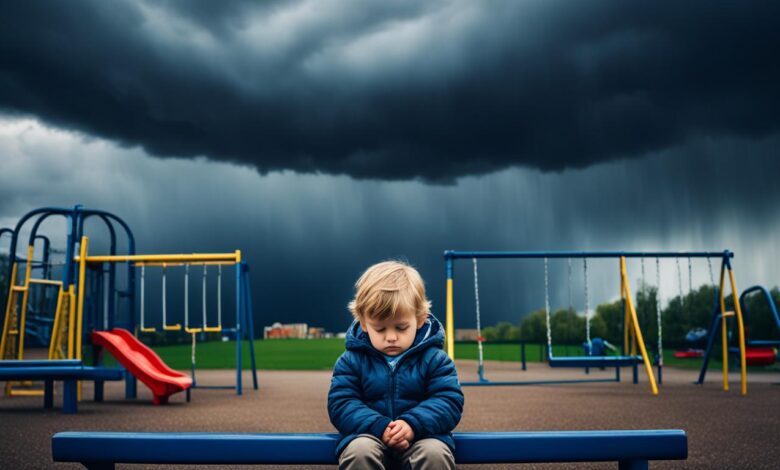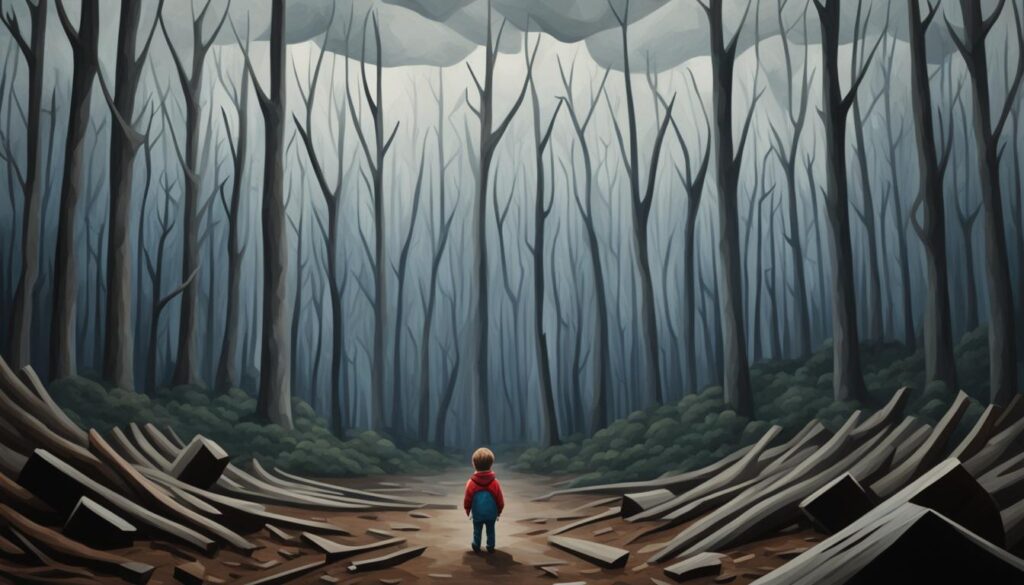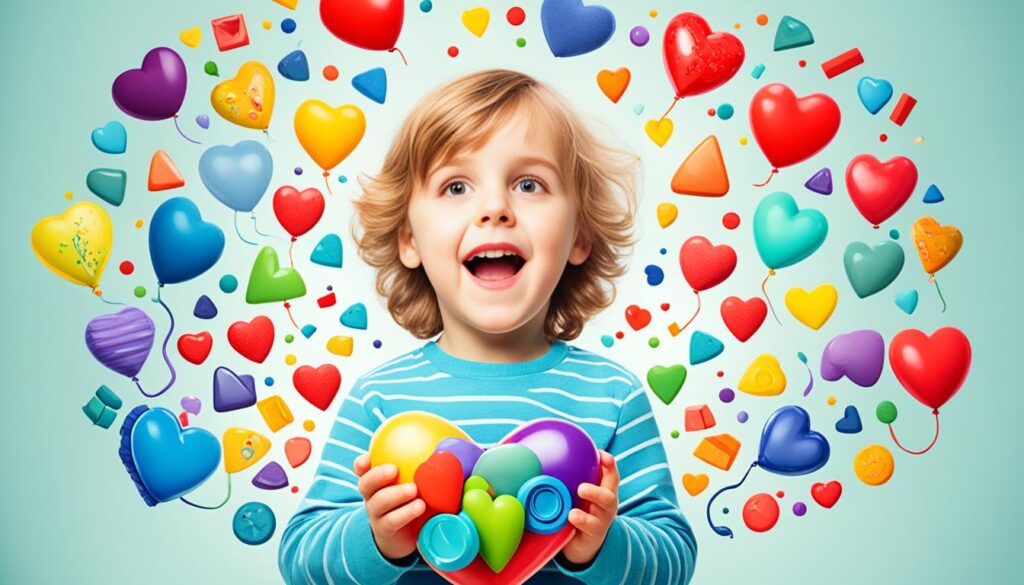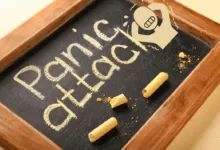Early Warning: 9 Key Signs of Depression in Children – Mindsterk

Did you know one in every five kids might face depression at some point? It’s a serious issue that can deeply affect a child’s happiness. Spotting depression signs early is key to helping them get better.
This article covers how to spot depression in kids. We’ll talk about why it’s important to notice signs early. Also, we’ll share tips on diagnosing and treating childhood depression. Understanding this can lead to a brighter future for our children.
Recognizing Childhood Depression
Spotting childhood depression can be hard. Kids’ moods change, and that’s normal. But we must watch for certain signs. Catching these early can really help kids.
“Children with depression might always seem sad, mad, or hopeless,” explains Dr. Emily Thompson from Bright Minds Child Development Center. “They might not want to play anymore, have a hard time focusing, or their eating and sleeping habits might change.”
Sometimes, these signs alone don’t mean a child is depressed. But they’re clues we shouldn’t ignore. If a child keeps showing these signs for over two weeks, and it’s getting in the way of their day, getting help is important. This helps us figure out if they’re dealing with depression.
Identifying Depression in Young Children
Finding depression in young kids is tough. They might not know how to tell us what’s wrong. Dr. Sarah Rodriguez, who works at Hopeful Minds Clinic, gives us some tips:
“Little ones might not seem sad in the usual way. Instead, their actions might change. They might start wetting the bed again or wanting to be held all the time. They could get cranky, not like their favorite games anymore.”
Parents and guardians are key. They notice these shifts in behaviour. Acting early can make a big difference in the child’s happiness.
Remember, these signs might point to depression, but it takes a professional to know for sure. A full check-up is needed for the right diagnosis.
Note: Image shows a sad child, underlining how crucial it is to spot childhood depression
Causes and Risk Factors for Childhood Depression
The exact causes of childhood depression are still not fully understood. However, research points to a mix of factors at play. Family history, physical health, and the environment a child grows up in all matter.
Family troubles, like ongoing conflicts, a parent moving out, or losing someone dear, deeply affect a child’s heart and mind. If a child’s parents or siblings have battled depression, that child is more likely to face it too.
“Family history of depression can predispose children to this condition. The interplay of genetic and environmental factors can contribute to the development of depression in susceptible individuals.” – Second Source
Physical health is also key in childhood depression. Kids dealing with chronic sickness, sleep problems, or brain disorders are more at risk. A child’s overall health shapes their emotional and mental state.
Kids’ surroundings matter, too. Facing bullying, any form of abuse, or neglect leaves deep scars. Traumatic events or high stress can pave the way for depression.
Risk Factors for Childhood Depression
| Factors | Contributing Factors |
|---|---|
| Family | Family history of depression, family difficulties, parental separation |
| Physical Health | Chronic illnesses, sleep disturbances, neurological disorders |
| Environment | Bullying, physical or sexual abuse, neglect, exposure to traumatic events |
Keep in mind that not every child with these risks will get depressed. How these factors mix and match, along with how resilient a kid is, impacts a lot. Catching signs early, stepping in, and supporting the child can ease these risks. This helps keep kids mentally healthy.

Diagnosing Childhood Depression
To accurately diagnose childhood depression, a detailed check by an expert is necessary. This often includes a mental health evaluation. It could involve different steps to understand the child’s feelings and experiences.
1. Interviews with the Child and Parents
Interviews with both the child and their parents are vital. These discussions help the expert understand the child’s emotional world and actions. They ask important questions to get information needed for a correct diagnosis.
2. Psychological Testing
Sometimes, professionals use psychological tests to learn more about a child’s mental health. These tests help explore the child’s emotions, thinking, and how they handle life. Experts use these carefully designed tests to collect detailed information, which helps in deciding what help the child needs.
3. Gathering Information from Various Sources
Getting views from teachers, friends, and relatives is also important. It gives a fuller picture of the child’s behaviour and feelings in different places. This team effort helps understand the child’s life better, making the diagnosis more precise.
“The full check-up includes interviews, tests, and feedback from many people. This way, experts can understand childhood depression from all sides and diagnose it correctly.”
After finding out what’s going on, the expert can make a plan that suits the child’s needs.
Key Components of Diagnosing Childhood Depression
| Component | Description |
|---|---|
| Interviews with the Child and Parents | Talking with the child and parents to learn about the child’s feelings, actions, and any symptoms. |
| Psychological Testing | Tests to check the child’s thoughts, feelings, and how they get on in life. |
| Gathering Information from Various Sources | Information from teachers, friends, and family can be used to understand the child’s life in different places. |
Treating Childhood Depression
Appropriate treatment is key in aiding kids to beat depression and better their mental health. Psychotherapy (counselling) and medication are the two main effective treatments for childhood depression.
Psychotherapy or talk therapy allows kids to explore and understand their emotions with a professional’s help. It offers them a safe space to share feelings and learn coping mechanisms. Through this, kids discover how to handle their emotions, fight off negative thoughts, and increase self-esteem.
Medication, especially for severe cases, can improve children’s mood by balancing brain chemistry. Drugs like SSRIs are common but must be carefully overseen to prevent risks, such as increased suicidal thoughts. Hence, regular checks with a healthcare provider are vital.
A mix of psychotherapy and medication often works best. It tackles both the emotional and physical parts of depression, giving kids a great recovery chance.
Diagnosis involves a thorough check by a healthcare pro. Treatment like counseling or meds is then tailored to fit the child’s needs and situation.
Effectiveness of Psychotherapy and Medication in Treating Childhood Depression
Research shows psychotherapy and meds both greatly reduce depressive signs in young ones. A study in JAMA supports combining these treatments for the best results.
| Treatment Option | Benefits |
|---|---|
| Psychotherapy | Provides a safe and supportive environment for children to express themselves |
| Helps children develop effective coping strategies | |
| Improves self-esteem | |
| Medication | Regulates brain chemistry, alleviating symptoms |
Treatment should be custom to each child’s unique depression journey. Working closely with kids, caregivers, and healthcare teams ensures effective care and support.

Prognosis and Outlook
When childhood depression is caught early and the right treatment is given, kids can look forward to a better future. They can overcome symptoms and take back their lives. Treatments like therapy and medicine offer hope, says the First source.
If childhood depression goes untreated, it can hurt a child’s future. Without help, the depression may continue or come back, making things harder for the child. This risk and the ongoing symptoms can damage a child’s feelings, friendships, and school work. It can lower the quality of their life, as the Third source explains.
Long-term Consequences of Depression
Childhood depression is serious. It’s not just being moody. It needs careful attention and treatment. The Third source shows that not treating childhood depression can lead to major problems later on, including:
| Consequences of Untreated Childhood Depression |
|---|
| 1. Impaired social relationships and difficulty forming meaningful connections |
| 2. Academic challenges and poor school performance |
| 3. Increased risk of substance abuse and addiction |
| 4. Higher risk of developing other mental health disorders |
| 5. Reduced self-esteem and negative self-image |
| 6. Impaired emotional development and difficulty regulating emotions |
It’s key that parents, caregivers, and healthcare professionals spot the signs of depression in kids early. Early help can prevent serious outcomes. The right diagnosis and treatment help kids become more resilient. They learn to deal with their feelings and get back to feeling good. Treating childhood depression early helps kids grow up healthier and happier.
Conclusion
It’s vital to catch and help with childhood depression early. This condition is serious and needs attention right away. The role of parents, caregivers, and doctors is key in spotting and treating depression signs in kids.
Those looking after kids must be alert and know about childhood depression. They can make sure kids get the help they need early. Helping kids early can make a big difference in their recovery and reduce long-term effects.
Treatment for childhood depression might include therapy, medicine, or both. It’s important to find the right treatment. Also, a loving and supportive environment helps a lot. By understanding how crucial support is, we can make a big difference in the lives of children dealing with depression.






